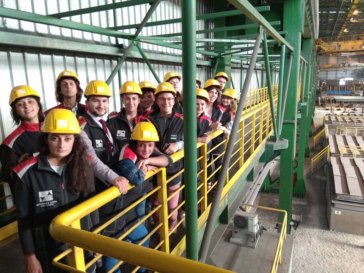From ratification to implementation of the EU-Ukraine Association Agreement: CiSEP Trainings for Ukrainian civil society

IEP conducted workshops on EU coordination and DCFTA in three Ukrainian cities within the Civic School for Sound EU Practice (CiSEP).
The way from EU decision to its implementation into the Ukrainian law is a complex process influenced by many different actors. Professional expertise about the Association Agreement and the understanding of the EU coordination in Ukraine are therefore essential in order to actively influence the association process. This is particularly true for the representatives of the civil society.
To make it possible, the IEP’s Capacity Development team together with local partners implemented the second CiSEP Level A workshop „From Ratification to Implementation: How the AA/DCFTA works for Civil Society, Administration and Business“ in three Ukrainian cities. The trainings took place parallel in Lviv and Dnipro from 11 to 14 September and in Chernihiv from 18 to 21 September. Three main topics of the training focused on EU coordination in Ukraine, the experience of monitoring the association process by the NGOs in the Western Balkan countries as well as the provisions and implementation stand of Chapters 3 and 4 of the Deep and Comprehensive Free Trade Area (DCFTA).
The interplay of different actors and their functions in the inner-Ukrainian as well as bilateral EU coordination was learned in a form of a simulation game. Experts from Serbia and Bosnia and Hercegovina shared their experience in EU coordination and about the role of the civil society in the association process.
Even more challenging were the sessions on Technical Barriers to Trade (TBT, DCFTA Chapter 3) and Sanitary and Phytosanitary Measures (SPS, DCFTA Chapter 4). That’s why the input and introduction to the provisions of both Chapters were followed by excursions to relevant companies in order to see the practical consequences of AA/DCFTA implementation on the ground.
For example in Dnipro, the Fellows visited a production site of “Interpipe”, one of the leading steel pipe producers in the world. The visits and discussions with exporters helped the training participants to better understand what the implementation of the Association Agreement means for producers and what chances and risks the AA/DCFTA pose to them.
Parallel to that, the teambuilding exercises and activities fostered the exchange between the participants and strengthened the CiSEP network, which will be further expanded and institutionalized in the Level B trainings.
Level A “Basics of the AA/DCFTA” will finish in October together with the third workshop. The first specialization trainings of the Level B will start in November in Odessa.
The Civic School for Sound EU Practice is supported by the German Federal Foreign Office.
The Ukrainian partners of the project: Polissya Foundation for International and Regional Studies (Tschernihiw), NGO “Public Chamber of Ukraine” (Dnipro), Civil Network OPORA (Lwiw), Odessa Regional Organization of All-Ukrainian NGO “Committee of Voters of Ukraine”.
To learn more, visit the CiSEP Website or Facebook page!
